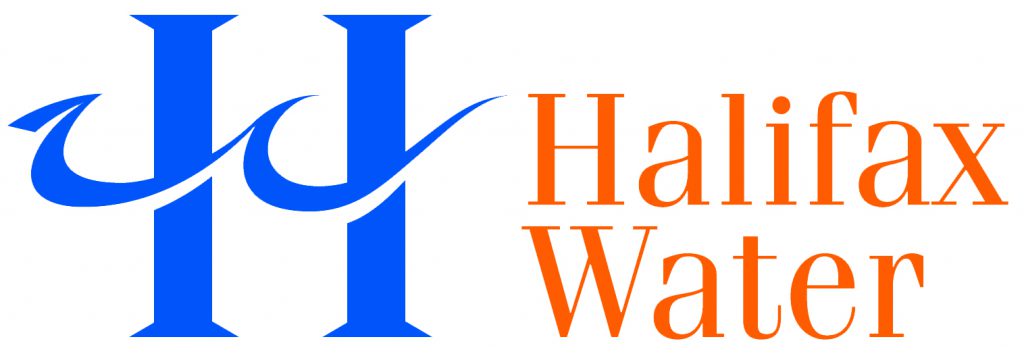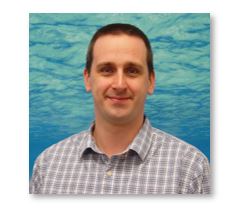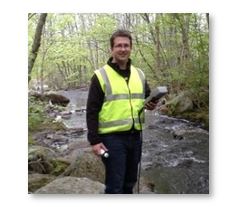About Halifax Water:
With a mandate to provide world-class services for our customers and our environment, Halifax Water is Canada’s first regulated water, wastewater and stormwater utility serving a population of about 376,000 in Halifax Regional Municipality. In addition to a collegial work environment that promotes a work-life balance, Halifax Water offers its employees a challenging and rewarding career with a competitive compensation and benefits package, opportunities for professional development, and incentive programs. As a member of the team at Halifax Water, you will be contributing to the success of the utility while delivering water, wastewater and stormwater services in an integrated, cost effective and environmentally sound manner with a commitment to long term sustainability.
Thanks to Halifax Water for being a Silver Sponsor of the ACWWA 2021 Annual Conference!
2021 Technical Presentations from Halifax Water:
Opening Keynote: Lessons Learned From Managing Land Issues
Day 1: December 7, 2021 at 8:50 AM AT
Heidi Shedler, David Jones and Josh DeYoung
Implementing utility projects of any kind takes great planning and technical expertise. Managing the land issues related to a project is no exception, and it is an often overlooked but integrally important of aspect of utility project management. Failure to properly manage land issues can result in significant delays and cost overages. This presentation will provide an overview of the various land issues that can be encountered with utility projects and provide lessons learned from navigating our way through them, staying on-time and on-budget.
About Heidi Schedler, Corporate Legal Counsel
Heidi Schedler is General Counsel and Corporate Secretary at Halifax Water. She provides legal and strategic advice to the utility on matters involving land management, procurement, privacy, governance, litigation, insurance, and regulatory compliance. Heidi has worked at Halifax Water since April 2019, and prior to that spent 15 years as enforcement counsel for the Nova Scotia Securities Commission. Heidi is also a member of the Canadian Ski Patrol, enjoys both downhill and Nordic skiing, and spends a lot of her free time at her camp on the Washademoak Lake in New Brunswick.
About David Jones, Land Management Technician:
David Jones is the Land Management Technician at Halifax Water. He works with all groups within the utility for real property requirements. David has worked at Halifax Water since 2017 and has over 20 years experience in real property research. David is also highly involved in ringette as National Ringette League referee and the head coach for his daughter’s U10 team.
.
About Josh DeYoung, Manager of Wastewater Infrastructure Engineering:
Josh DeYoung is the Manager of Wastewater Infrastructure Engineering at Halifax Water. He leads a project delivery team comprised of professional and technical staff responsible for the provision of engineering services relating to the management of Halifax Water’s wastewater infrastructure. Josh has worked at Halifax Water since 2013 with a focus on infrastructure approvals, operations and capital project delivery. Josh spends his free time with family and enjoys helping out on his daughters’ hockey team.
Abstract: Using Esri GIS Web Applications to Maintain Distribution System Water Quality
Day 1: December 7, 2021 at 12:05 AM AT
Halifax Water has developed solutions to allow for simultaneous data collection and visualization of the data using ESRI GIS applications. Currently, two different uses of these solutions have been implemented as case studies to support further development.
Case Study #1: Field staff conduct sampling at select locations along a water main to measure changes in water quality. The data is entered directly into the solution at the time of sample collection and the data is available for review immediately. The readiness of the data for review has reduced the time between data collection and data review from one or more days to seconds. This empowers staff with the information needed to make operational decisions necessary to maintain high quality drinking water for Halifax Water’s customers.
Case Study #2: Drinking water customers will contact Halifax Water’s Customer Care Centre to report water discolouration at the tap. Traditionally, the data is maintained by the Customer Care Centre and
reports are forwarded to relevant departments via e-mail or work orders. However, each issue is isolated and visualizing the data to identify trends our underlying root causes for drinking water discolouration takes a lot of time and effort. To address this, a web mapping application was created
and posted to Halifax Water’s website to allow customers to report discoloured drinking water though a couple of clicks, hopefully encouraging more customers to report issues with their drinking water. In
addition, all of this data will be accessible in a central location that can quickly be distributed to various departments, which will allow for quick follow-up, response, and additional analysis when drinking water quality issues are reported.
Feedback from these two case studies has been overwhelmingly positive from both Halifax Water’s customer and staff. The easy data collection and simultaneous data accessibility for analysis has improved Halifax Water’s response to emerging water quality issues.
About Adam McKnight, Data Analyst – Water Quality Programs:
Adam McKnight is the Data Analyst for Water Quality Programs with Halifax Water, where he works with treatment, distribution operations, GIS, and water quality staff to assist in water quality research, solve water quality and treatment problems, and support water quality data management solutions and analysis processes. Adam received his BSc in physical geography from Memorial University of Newfoundland and Labrador, followed by a graduate diploma in water quality from the Fisheries and Marine Institute of the University of Newfoundland and Labrador.
Abstract: They May Be Small, But They Come With Big Consequences: Lessons Learned From Implementing an Algal Monitoring Strategy
Day 2: December 8, 2021 at 11:17 AM AT
Cyanobacteria (blue-green algae) are naturally found in our lakes and streams. There are thousands of species of cyanobacteria, and they are a natural part of the ecosystem. Some cyanobacteria species can produce taste and odour compounds like geosmin and MIB (2-Methylisoborneol), and some species can also produce algal toxins, like microcystin, cylindrospermopsin, and anatoxin-a amongst others. Health Canada has a maximum acceptable concentration for total microcystin.
Due to lake recovery and climate change’s combined effects, the biological activity in many lakes in Nova Scotia is changing. Halifax Water first noticed this in 2012 with the detection of geosmin at Pockwock Lake. In response to the changing source water, Halifax Water has developed and implemented an algal toxin monitoring program, which is in line with industry best practices. This program is multi-pronged and makes uses of several different early warning and pre-screening tools to allow proactive responses to algal blooms and any potential water quality impacts. This presentation will discuss the successes and challenges of implementing an algal monitoring program, including response to several blooms in different water supplies. Topics to discuss include the use of continuous fluorescence readings using water quality sondes, Abraxis presence absence test strips, implementing QPCR methods to detect genes responsible for toxin production, algal ID and enumeration, challenges with interpreting results and decision-making and communicating with customers in the absence of quantitative analytical results.
About Jessica Campbell, Water Quality Process Specialist, Halifax Water:
Jessica Campbell is a Water Quality Process Specialist at Halifax Water. In her role with the Water Quality group, Jessica provides technical and operational support from source water to tap water. Prior to her work with Halifax Water, she spent many years as a research technician for the Centre for Water Resources Studies at Dalhousie University, focused largely on water treatment optimization.
Abstract: Prioritizing Transmission Mains Shouldn’t Be Risky Business
Day 3: December 9, 2021 at 9:50 AM AT
Further to recommendations from the Infrastructure Master Plan, Halifax Water engaged CBCL Limited in 2021 to develop a risk assessment and prioritization framework for transmission mains in the water system. A risk score for an asset is determined as a function of the likelihood of failure and the consequence of failure, although the factors incorporated into determining the likelihood of failure and consequence of failure can vary greatly across the industry. The project included a literature review to determine risk assessment frameworks being used in the industry and to review current best practices and standards. Factors incorporated into the risk scoring vary due to the priority given by each municipality or utility, with certain organizations including or excluding factors that may be used in other locations. One commonality across the industry is the use of pipe age and material to inform the likelihood of failure score. Other factors were reviewed considering the significance of the factor and the availability of the data. A workshop was held with Halifax Water staff to determine the consequence of failure factors that they consider makes a potential transmission main failure worse than another, best incorporating their experience and values. Preliminary risk frameworks were developed and tested on a sample section of the system. Following input and review by Halifax Water staff, the exercise was expanded and applied to all the water transmission mains in the system. The resulting framework was developed to best reflect the factors Halifax Water deems most important when considering the criticality of individual transmission mains.
The project had the following benefits:
- Provided a mechanism to capture valuable insight, experience, and knowledge of operations staff.
- Will help to prioritize monitoring and maintenance activity and become more proactive over reactive.
- Provided more information for future decision making and planning.
About Heather Miller, Project Manager – Asset Management & Planning:
Heather Miller is a professional engineer with over 14 years’ experience. She is a project manager with Halifax Water’s Asset Management and Long-term Planning team. Heather joined the Halifax Water team in 2013. Heather manages long-term planning infrastructure studies, along with climate change adaptation and risk assessment projects.
.
2020 Technical Presentations from Halifax Water:
Abstract: From the Main to the Meter: Lead is So Much More Than a Pipe in the Ground
Day 1: December 8, 2020 at 11:15 AM AT
The goal of this presentation will be to provide the audience with a summary of the evolution of Halifax Water’s Lead program including lessons learned and forging the path forward. Numerous aspects of the program will be discussed, including how to find lead pipes, how to set up and execute a lead sampling program (and what sampling can and cannot tell you), evolution of public engagement efforts, barriers to increasing lead service line replacement numbers, and how to build a team capable of executing the program.

About Melissa Healey, Water Quality Program Supervisor:
Melissa Healey M.A.Sc., C.E.T., is the Water Quality Programs Supervisor with Halifax Water. Her team works on a variety of support, monitoring, and research programs ranging from source to tap. Her primary focus is Halifax Water’s Lead Service Line Replacement program. Melissa received her Diploma In Environmental Engineering – Water Resources from the Nova Scotia Community College in 2009, followed by her B.Sc. in Environmental Science from Saint Mary’s University in 2011, followed by her M.A.Sc. from Saint Mary’s University in 2015 where she conducted her research in The Gambia, West Africa.
Abstract: Reservoir Life Cycle Assessment and Material Selection
Day 3: December 10, 2020 at 10:30 AM AT
About Jonathan MacDonald, Project Engineer:
Since joining Halifax Water in 2014 as a Project Engineer, Jonathan has managed a variety of key projects within the water distribution system including treatment plant upgrades, linear infrastructure and dam construction. By using his experience gained in the civil and general contracting industry he provides a practical and constructability perspective on infrastructure projects bringing them from concept to completion.








